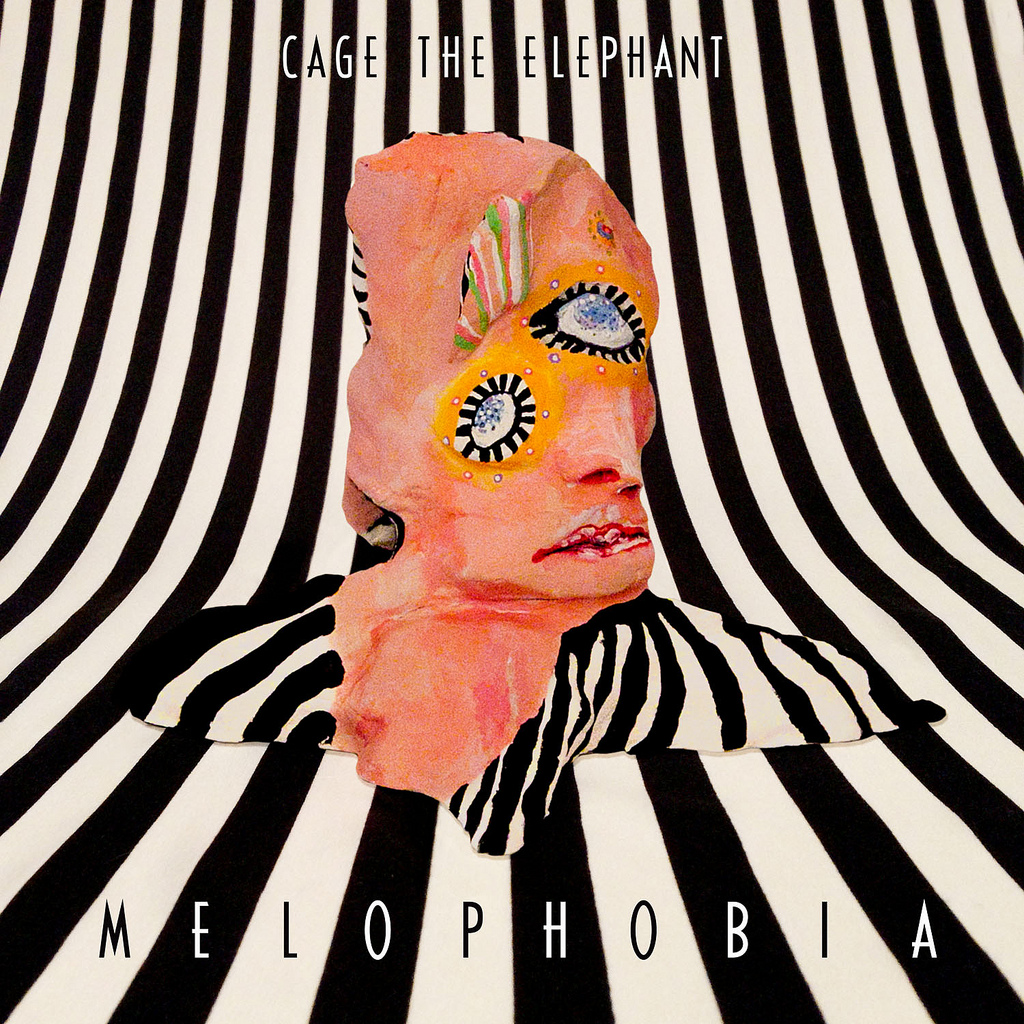Loneliness can be crippling, depressing and downright heartbreaking. Although no one is immune to it, we all get to decide how we react to loneliness. You can cower in fear and let it overtake you, or you can approach it head-on with courage and determination. “Melophobia,” the third album from Cage The Elephant, chooses to do the latter. For the past five years, the band has done some serious soul searching in order to discover their true identity as artists, and they just may have found it.
A "FEAR OF MUSIC"
Ironically titled, the album’s name actually means “the fear of music” — which is quite likely what a lot of “Ain't No Rest For The Wicked” fans were experiencing when the band's sophomore release, “Thank You, Happy Birthday,” flipped the tables from funky blues rock to a kind of dark and gritty punk. Nevertheless, it garnered critical acclaim and got us anxious for more. But yet again, “Melophobia” throws us for a loop as the band’s most subdued album to date. Though it doesn’t forfeit the energetic spasms we’ve grown to expect from Cage The Elephant, “Melophobia” dials back the recklessness we heard on “Indy Kidz” and channels the soul of “Back Against The Wall.”
A common theme in Shultz’s songwriting, something that’s showed up on every Cage The Elephant album, is anti-consumerism — or rather, not allowing yourself to be disillusioned by the corporate fat cats who only want your money. Simply put: Don’t be a sellout. “Thank You, Happy Birthday” didn’t waste any time communicating the point with tracks like “Sell Yourself” and “Shake Me Down.” This attitude is largely what lends the songs their poignant sound and connects them with an audience that is more concerned with principle than catchiness. “Melophobia” is no exception to the trend.
SCHIZOPHRENIC AND INTROSPECTIVE
“Telescope,” the album’s most mellow and introspective song, places the contemplative Shultz peering off into a “far and distant galaxy.” Through the lens he watches as a figure of himself hides inside his home and lives a life dictated by fear. He sings, “Time is like a leaf in the wind / Either it’s time well spent or time I’ve wasted / Don’t waste it.” This is where “Melophobia” begins to differentiate itself from anything the band has done in the past. Rather than looking outward and condemning whatever hinders us from living a full life, Shultz now turns inward to evaluate the limitations we place on ourselves. Those self-created limitations that allow loneliness and fear to trick us into believing they will keep us safe, when more often than not, they blind us.
“Melophobia” isn’t all business though. The opening track, “Spiderhead” sounds just as schizophrenic as the song’s lyrics suggest Shultz feels. “Teeth” rattles its way through five minutes of pure madness, complete with horns and piercing guitar squeals. The song vibrates along the same line as any Jack White song until the three-minute mark when it’s suddenly transformed into a poetic Neutral Milk Hotel-esque ballad. Speaking of Jack White, his Dead Weather companion, Alison Mosshart joins Shultz on “It’s Only Forever,” a song that would be just as welcomed on any album by The Kills.
Cage The Elephant has come a long way since 2009. They have never been afraid to take risks, but this might be their biggest yet. Shultz comes through in these songs like he never has before, and it’s his vulnerability and honesty that allow the whole band to mature without losing that youthful abandon that makes them unique. “Melophobia” is proof that Cage The Elephant isn’t afraid of anything.







